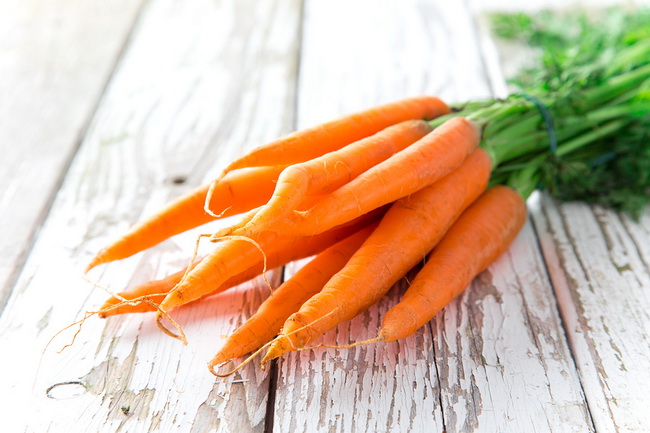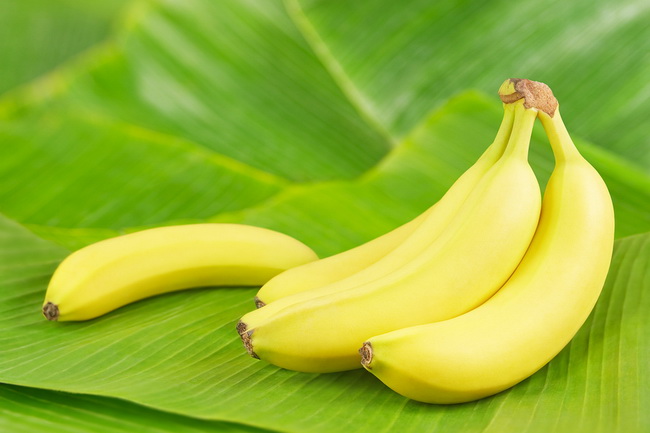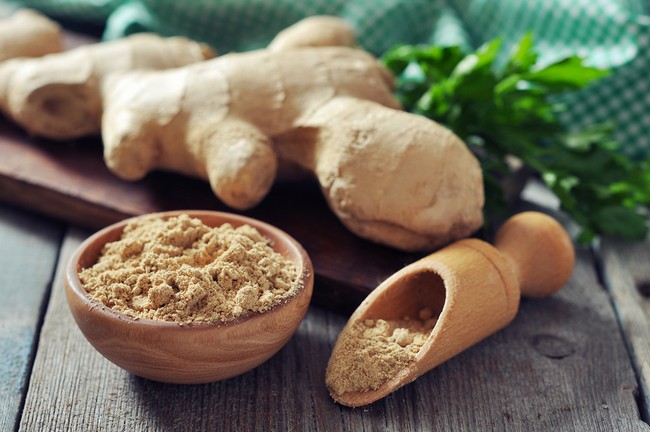- Make It Yourself Lavender Heart-Shaped Bath Bombs!
- 20 Things You Never Knew About “Down There”
- 12 Best Foods For Those Suffering From Arthritis Pain
- 12 Personal Hygiene Mistakes Almost Everyone Makes (Mom Never Told You About #4!)
- 15 Medicinal Plants And Herbs From The Cherokee People
- 12 Mind-Blowing Benefits Of Drinking Coconut Water During Pregnancy
- 12 Outstanding Winter Foods That Won’t Fatten You Up Like A Christmas Turkey
12 Natural Ways to Beat IBS (# 9 is SO Simple!)

Photo credit: bigstock.com
IBS, or irritable bowel syndrome, sometimes called mucous colitis or even spastic colon, is a gastrointestinal disorder caused by an irregularity and irritability in the function of both the large and small intestines.
Sufferers typically share the common symptoms of:
- Gas and bloating
- Feelings of fatigue, sometimes extreme
- Mucus covered stools
- The urge to have a second bowel movement within minutes after having one
- Abdominal cramps and pain
- Nausea, most notable after eating
- Headaches
- Anxiety or depression
- Diarrhea or constipation, often with alternating bouts of each one
It has been estimated that one in every 5 Americans suffers from IBS, which makes it one of the most commonly diagnosed health problems. It tends to affect women more than men, and generally starts in the late teens or early 20’s. For some people, the symptoms are mild and they don’t associate their issues with a chronic disorder. For other people, IBS becomes so severe that is disrupting to their everyday life.
Some of the most common triggers that anyone with IBS should avoid are:
- Citrus Fruits – All citrus fruits appear to trigger an attack, but oranges and tangerines appear to be the worst offenders for most people
- Gas Producers – Those with IBS already suffer from bouts of painful gas, they don’t need foods that create more such as cabbage, beans, and broccoli
- Dairy Products – Most IBS sufferers are lactose intolerant, so avoiding milk and dairy products, other than yogurt and hard cheese, is a good idea
- Spicy Foods
- Chocolate
- Caffeine
- Cigarettes
- Sugarless gum and candy – Especially those made with sorbitol
- Sugar
Since there is no cure for IBS, it’s easy for those afflicted with this disorder to become frustrated and depressed.
There are solutions, however. If you are having a hard time dealing with IBS, we have a list of 12 natural ways you can try that can offer some relief from your symptoms.
Continue to Page 2

Photo credit: bigstock.com
Of course, these are not a cure for IBS, and everyone’s body is different. What works for one person does not necessarily work for another. Always consult with your physician before consuming any herbal supplement to be sure you are doing the right thing for your particular situation.
1. Pears
Although some types of fruit bother those with IBS, fresh, ripe pears appear to be an exception to the rule. Most people find that pure pear juice and/or dried pears are helpful in treating their intestinal problems.
2. Yogurt
Consuming yogurt that contains live and active cultures is a popular remedy when IBS caused diarrhea strikes. These live cultures are friendly bacteria that can provide your digestive system with an extra layer of protection in your intestines. Yogurt also helps your body to generate lactic acid, which flushes out toxins from the body. Try to eat yogurt several times a day until you get relief from your condition.
3. Lettuce
Like pears, it is not really known why this vegetable appears to relive IBS symptoms for some people, but it does. This seems to work best when lettuce leaves are lightly steamed. Choose the darker varieties of lettuce such as Romaine or Swiss chard.
Continue to Page 3

Photo credit: bigstock.com
4. Flax Seed
Flax seeds are a great source of omega-3 essential fatty acids, which are well-known for supporting both the digestive and immune systems. Flax seeds are also a great source of fiber, which is necessary for the body to remove waste. Many people with IBS find that flax seeds can treat both diarrhea and constipation.
Flax seeds work best when slightly ground. You can grind your own flax seeds in your blender or coffee grinder and add one tablespoon of the powder to one glass of water. Drink this mixture daily. Alternately, you can add one teaspoon of flax seed to one cup of boiling water and allow to steep for 10 minutes. Strain and allow to cool, and then drink this tea before going to bed to stop gas in its tracks.
5. Carrots
Carrots are another good option to help treat both constipation and diarrhea. The pectin in carrots helps many of the symptoms of IBS. You can drink fresh carrot juice two or three times each day or bake some carrots and enjoy at least a half a cup of carrots each day with lunch or dinner until your symptoms subside.
Raw carrots should be avoided, as most people find they irritate the stomach.
6. Peppermint
For relief from bloating, cramping, and diarrhea, a little peppermint can go a long way. The British Medical Journal published a study which found that the antispasmodic compounds in peppermint were very effective in treating IBS.
Peppermint contains an antispasmodic compound called menthol oil, which soothes and smooth’s the muscles of the digestive tract. This will provide relief from gas pain, bloating, and abdominal spasms. This will also allow food to pass through the stomach and intestines much more quickly and easily.
You can drink peppermint tea two or three times each day or add three drops of peppermint oil in a half cup of warm water and drink this three or four times each day.
Don’t overdo peppermint oil! In excessive amounts, peppermint can cause a loss of appetite, nausea, heart problems, and even nervous system disorders. Speak to your doctor first before consuming peppermint to be certain that this herb is right for you.
Continue to Page 4

Photo credit: bigstock.com
7. Bananas
If you are looking for another fruit that you can eat to help control your IBS, bananas might be for you. Bananas can help to stop diarrhea as they contain soluble fiber, which will help to absorb the excess liquid in the intestines. The high level of potassium in bananas can help to relieve symptoms of bloating and gas. Try eating a ripe banana twice each day to keep your digestive system working as best it can and prevent IBS symptoms. Find out what health problems bananas can solve better than anything else.
8. Fennel Seeds
Fennel seeds help to remove fats from the digestive system, which can stop the over-production of mucus in the intestine, a major problem for those with IBS. Adding just a half a teaspoon of crushed fennel seeds to a cup of boiling water and allowing this tea to steep for 10 minutes, then drinking it twice each day can relieve spasms and intestinal bloating.
9. Chamomile
This is one of the oldest herbs around, used for thousands of years to calm both the mind and body. Chamomile contains both tannins and antispasmodic compounds, which can offer some much needed relief from IBS symptoms. Chamomile will also reduce inflammation in the intestines and stop abdominal cramps. Drink two or three cups of chamomile tea each day for long lasting relief from cramps and diarrhea.
Continue to Page 5

Photo credit: bigstock.com
10. Ginger
Ginger has long been known to reduce nausea, gas, and bloating and is often recommended for the treatment of IBS. Ginger is a natural anti-inflammatory and can relax the muscles of the intestines. You can make your own ginger tea from fresh ginger root, or use any of the many premade ginger teas that are available. Drinking ginger tea two or three times each day can ease cramps and pain.
If you have hypertension, do not use ginger. Talk to your doctor if you have any questions about consuming ginger.
11. Oat Bran
Many people find that oat bran eaten on a regular basis gives your body so really needed fiber and reduces IBS symptoms dramatically. Oat bran will make your stools softer and allow them to pass easily, skipping both constipation and diarrhea. Simply mix one tablespoon of oat bran into your oatmeal, breakfast cereal, or add one part of oat bran to two parts of water and eat it the same way you would oatmeal.
You should note that when you start eating oat bran, you might have gas and bloating because your body is not accustomed to the fiber. This will pass after just a few days.
SEE ALSO: Top 11 Warnings Signs of Colorectal Cancer You Shouldn’t Ignore
12. Cabbage Juice
This is an old home remedy that is known to heal stomach ulcers, so it only makes sense that it will work for those with IBS. Cabbage juice helps to deeply cleanse the mucus membranes of the intestinal tract and the stomach, which can help stop constipation. Cabbage juice has a mild laxative effect, so it will make bowel movements easier to pass.
Cut some cabbage into small pieces and place them in your juicer. Drink one half cup of cabbage juice, three to four times each day.
Additional Tips:
- Some people find that hot baths relax the muscles and eases cramping.
- Don’t become hooked on laxatives. Try some of the other means above to relieve bouts of constipation.
- Eating more slowly can help cut back on gas.
- Mild exercise can help to keep the digestive system working properly.
- Learn to relax. Most IBS sufferers say that stress tends to make their systems worse.
- Eat smaller meals. Large meals can overload your already stressed digestive system.
IBS does not have to be an obstacle to a normal life. You can manage your IBS and enjoy life to the fullest!
References:
































